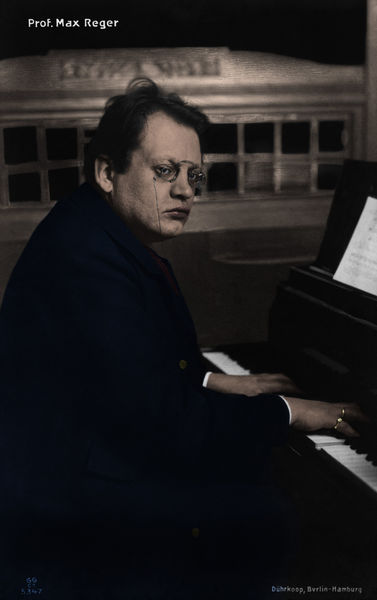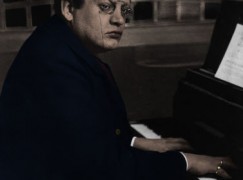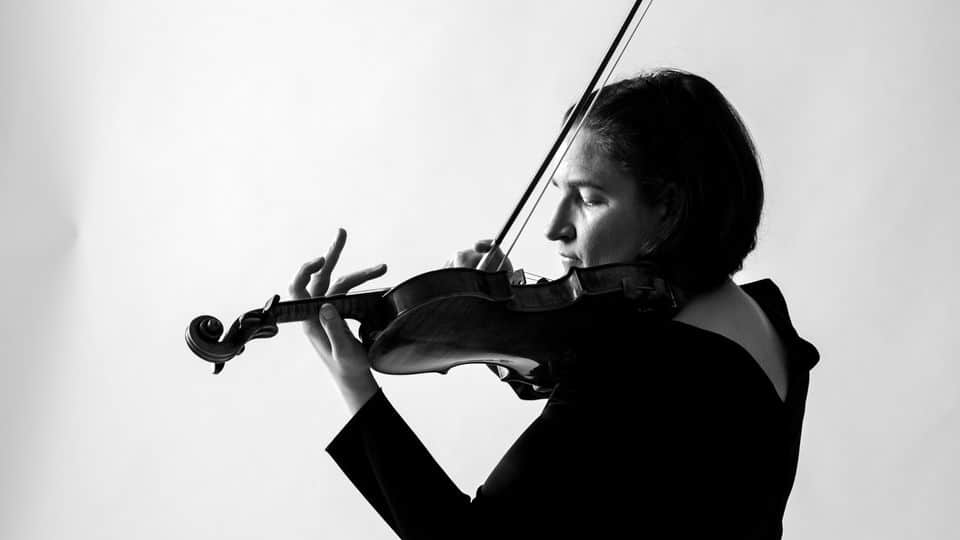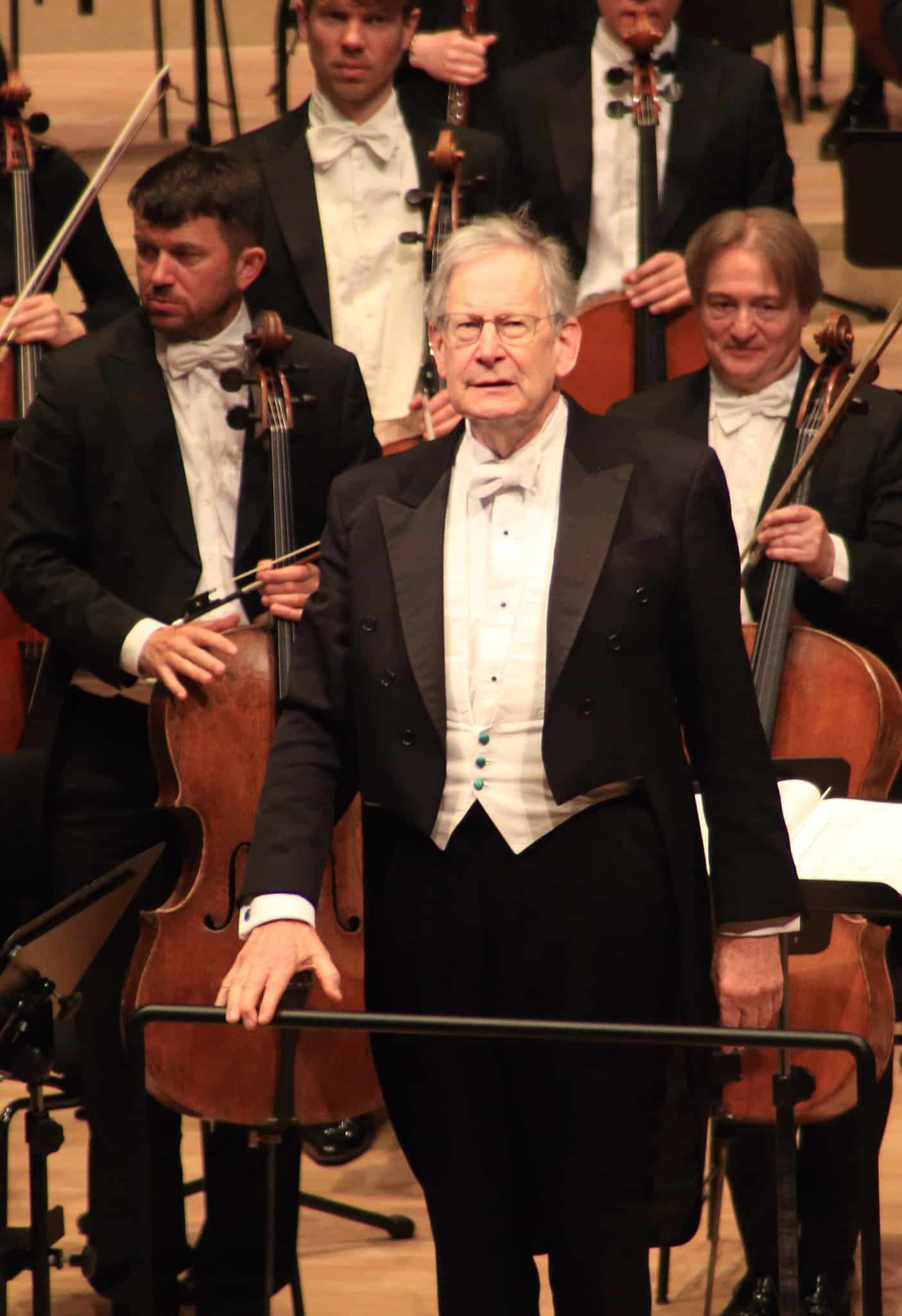Fancy 3 weeks with a palindrome composer?
mainOur former weekly diarist, now occasional contributor, Anthea Kreston, has been unexxpectedly immersed in Max Reger.
It was a great three weeks in our little town in the lush Willamette Valley of Oregon. The girls are settling into school, we have found a crazy/amazing house built into the side of a hill – views from each window, every room on a different level, connected by stairs like a real-life treehouse. Grandparents comfortably and elatedly installed as Jason and I turned around and headed for a week with our Humboldt Streichtrio (and now KlavierQuartett as well), to rehearse and perform three concerts in the sleepy, picturesque Bavarian town of Weiden. The birthplace of Max Reger – that enigmatic, excessive, hard-drinking and puzzling composer who in turn crams a million seemingly unrelated notes down your gullet, then lifts you up with moments of pure beauty and clarity.
Volker Jacobsen (original violist of the Artemis Quartet) Markus Becker (pianist – equally dynamic with classical or jazz), Jason and I made quick, detailed work of the programs, first in Hannover, where they are Professors at the Hochschule, then in the Rathhaus of Weiden – the council chambers would be the venue for the next three nights. Walls and ceiling of dark, solid wide-planked wood, cracked oil paintings of royalty and town elders lining the walls, chandeliers which look as if they could double as lethal weapons in a pinch – the room held onto the lower registers, turning them every bit as dark and rich as the wood which surrounded us.
The things that always astound me about Germany – the quiet dedication of the audience, the deep, personal connections to the composers and performers – attending concerts seems to be just a regular part of regular lives. These things were evident in spades in that festival – three weeks, every year, dedicated to Max Reger – a composer who elicits strong reactions, and is considered fringe, at best, in North America, but who is embraced whole-heartedly in Germany – his enigmatic qualities – both as a composer and human – only enhance their love for this quirky man. His pouty, chubby countenance – lower jaw jutting forward and thick, fleshy lips pursed – he isn’t one of the “top-50” composers that lined our books as students – his bust is probably not even considered a back-order item. But one would never know it in Weiden. The concerts were packed every day – and many of the same people were there for every performance. We were followed into our post-concert pub on the first evening by a banker who began to explain to us, in detail, how the recapitulation in the first movement of the piano quartet diverted from the standard form.
Today’s final concert was a mixed affair – the beloved German actor Udo Wachtveitl (from the crime series Tatort) interspersed the Op. 133 piano quartet movements with readings by and about Max Reger – his correspondences with his imaginary friend Ludwig (he would write letters to himself from Ludwig, posting them to himself from other cities – topics included an impassioned speech on the distracting big toe of a principal ballerina in an imaginary ballet), his crazed, self-imposed work schedule – the audience was in turns laughing at the sheer, exuberant personality of this strange man, and marveling at his copious musical output. It was my first Reger – and, learning it from/with musicians who have grown up with him, who know the language and the secret keys to the funky musical structure, it was a treat to be expand into that world, and be embraced by all of the people who keep him as a living, active member of their culture and community.







An interesting and welcome account, Anthea Kreston, many thanks. I’ve heard Reger;s variations on themes by Ferdinand Hiller, Mozart, and telemann ; and his big piano concerto, but not your piano quartet, not yet. Now it goes on the list to hear.
My complements to Ms Kreston. With my handle of Regerfan, I am pleased to be able to make what appears to be the first comment.
One of the highlights of my summer was to visit the museum in the castle of Meiningen and to see the Reger exhibit. They had some terrific Reger items, including a cabinet for sheet music that looked like an organ. It’s hard to describe but it was a special gift for Reger.
As a Reger devotee I have to say that his music can be hard to digest, but if you are a Reger skeptic I encourage you to start with the orchestral song An die Hoffnung op. 123. If you don’t appreciate that I think you wont be able to scale Mt. Reger.
Then sample the Boecklin suite op 128 and the serenade op 95. The variation works (such as Mozart op 132) are more famous but I sometimes find it difficult to hear these classical/baroque themes so overloaded.
For the chamber music I would go for the clarinet quintet op 146 and the quartets op 54 first.
For Ms. Kreston, I hope that she has the opportunity to delve into one of Reger’s “monsterpieces”, the quartet op 74. Along with the violin sonata op 72, they are the most
outre Reger pieces.
Also I really enjoyed the recent biography (in German) by Reger expert Susanne Popp, entitled “Werk Statt Leben”.
sorry for my typo in the first sentence. it is “compliments”, of course
I agree that Reger is an important composer, but doesn’t seem to be very audience-friendly. Maybe he’s TOO German, even for the Germans. Mind you, for a long time Bruckner was considered a bore, but I would say Bruckner is far more emotional than Reger and “hits you between the eyes” in a way Reger doesn’t.
Three weeks of solid Reger certainly sounds daunting, but your account is, as usual, sheer delight!
Great! My trio (Valen Trio) will record the Reger piano trio in December. An extreme work that covers the entire range of expression, from ecstatic calm to ecstatic frenzy. The piano quartet is probably among his very best works. Glad you got to play it. I never have.
“The things that always astound me about Germany – the quiet dedication of the audience, the deep, personal connections to the composers and performers – attending concerts seems to be just a regular part of regular lives.”
This was said about the SS as well.
well, then go ahead living with narrow-minded prejudice. i prefer living with art, free spirits and people like Anthea – and wonderful audiences like in Weiden . :). and yes, audiences in Germany (as well in german speaking countries) are exactly like she described.
I’ve never been to Weiden, but in the major German concert halls people generally behave rather boorishly. Endless coughing, chatting, unwrapping sweets, taking pills, drinking noisily from plastic bottles, taking pictures, using mobile phones, leaving mid-piece or during the applause… The list is endless.
Before anyone breaks out in a sweat: I live here and go to concerts frequently. The audiences are just as badly behaved as just about everywhere else. That said, string-quartet and chamber-music audiences do tend to be more disciplined and there for the music.
Thank you, Anthea Kreston, for this lovely account. I particularly like your description of Reger in the first paragraph!
Incidentally, Udo Wachtveitl has recorded a number of “Hörbiographien” on Mahler and other composers for Bayerischer Rundfunk, coupled with recordings from the BR treasure trove. And as far as I am aware, his Tatort colleague, Miroslav Nemec, is a classically trained pianist who studied at the Mozarteum.
“Endless coughing, chatting, unwrapping sweets, taking pills, drinking noisily from plastic bottles, taking pictures, using mobile phones, leaving mid-piece or during the applause… The list is endless.”
Or not taking pills and making a ruckus when collapsing. 😉 But I agree with your assessment.
Fortunately, I’ve never seen anyone drinking from plastic bottles mid-concert. Using mobile phones, however… (And yes, I’m talking about you, Madame de la Salle! 😀 )
wonderful remarks and thoughts about the great music of Reger. he is misunderstood as a late romantic composer but instead is modernistic and expressionistic. Schoenberg was a fan of Reger – of course. and then there s another big problem: his Music has to be performed on a high level. he is not like Beethoven or Shostakovich or even Strauss .. his music need devotion . and for conductors it is even more difficult : you can t learn his scores in trains or airports. you can t rehearse it (with a few exceptions like An die Hoffnung) in only one rehearsal. and besides his Mozart Variations and the four tone poems there are no real hits. but we should always try to get closer to this Incredible spirit and soul !
Indeed a very interesting composer, who gave Schoenberg a couple of hints – among which a harmonically-saturated texture hindering any clear articulation. There are truly wonderful episodes in Reger, regrettably the music is so uneven, the flashes of genius irregularly spread over the lava of chromatic torture. As an obsessive fanatic, he never seems to have taken some reflective distance to what he did, being too busy with everything.
This is an interesting introduction:
https://www.youtube.com/watch?v=KGv80K1-bbc
The problems musicologists have with propping Reger within a linear reading of music history, as if the most important thing is to assess who around 1900 wrote the most progressive chords first, bypasses his real achievement: some really good music, and the synthesizing of aesthetics of Brahms with Wagner, which was later-on claimed by Schoenberg without mentioning Reger’s example. Alas, much of Reger sounds like Wagner trying to write like Brahms after a binge of heavy beer drinking, without Brahms’ harmonic and formal ‘breathing’ and especially, without Brahms’ rhythmic differentiation which lifts even the heaviest masses off the ground.
Here is his piano quartet opus 133:
https://www.youtube.com/watch?v=fUGLW85TYBw
One of Reger’s best works is his Toccata in d minor for organ, of striking inventive brilliance:
https://www.youtube.com/watch?v=T4peVLDKMDE
Thanks for that link to op 133. It brought to mind my “3 rules of Reger”
1. If it says Allegro non troppo, obey the “non troppo”. Reger’s “tortuous” harmonic progressions become more comprehensible if you don’t rush
2. Don’t bang out the thick piano part. Consider playing at a softer dynamic marking than the printed one.
3. Use Reger’s indications of “ritardando” to mark off the key signposts of the sonata form (rounding off the end of a section, and pausing before the new one). Reger is a bit of an Archeopteryx, combining his heavy chromaticism with a rather “textbook” sonata form.
Audience comprehensibility is an issue with Reger, but I find these are ways to mitigate that problem.
Very sane and practical advice. When I was looking-up a video of that d minor toccata, it was exasperating to discover that almost ALL organists played the music too fast and totally insensitive to phrasing and rhetoric.
As a humorous diversion in this discussion, I offer a comment–with which I do not personally agree–from the late Irving Kolodin. Reger was a composer whose name was spelled the same both backwards and forwards, and his music sounded likewise.
Very nasty, very unfair but….funny, I must admit.
I never thought we’d make it through a Reger thread without mentioning his response to a critic, which starts with “I am sitting in the smallest room of my house”…
Thanks to Ed Gordon, I now understand the palindrome tag.
And thanks to Regerian and others, I’ve remembered Reger’s clarinet quintet and Arnold Boecklin Suite, which gave us another “Isle of the Dead” to contrast with Rachmaninoff’s,. They saw versions by Boecklin of the painting in different museums.
I also recall old records of a song of his called “Maria Wiegenlied” I baelieve, a lullaby.
Reger wrote a vast amount of music in his 43 years before dying in a Munich hotel. He was himself an accomplished organist and evidently made Welte-type mechanical organ rolls that I’ve never heard. Does anyone know them?
For the record, Reger died in a Leipzig hotel. He was meeting with, among others, the director of the CF Peters publishing firm, Henri Hinrichsen. I have a book of their correspondence that is another interesting source of information on Reger.
Thank you for mentioning the Reger organ rolls. Both organ rolls and piano rolls can be found on youtube. One of the piano rolls (for the Intermezzo op 45 #3) can be found here
https://www.youtube.com/watchv=p7O0pGubgiQ
Thanks, Regerian, for your information about Reger’s organ and piano rolls. Sorry I got the wrong hotel, but it looked like Munich from the window. And he was only 43 all right, I think, if he had already had his birthday that year.
At the beginning of the last century, hotels in Leipzig and Munich were notoriously bad.